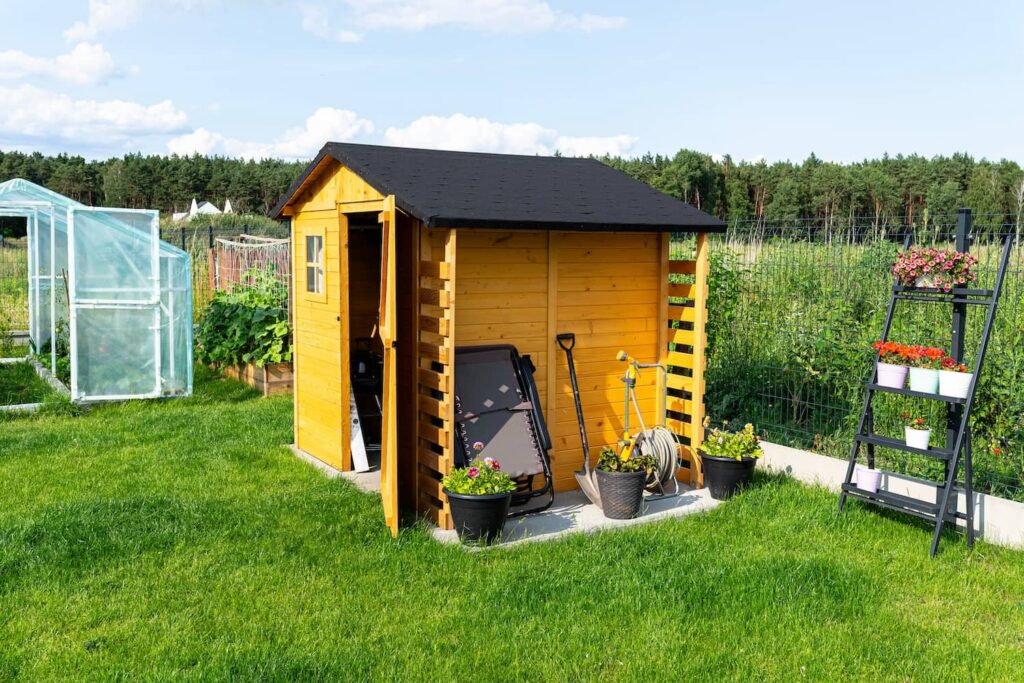What Kind of Foundation Should I Use for My Shed?
When building a shed, one of the most important choices you\’ll make is the foundation. The right kind will keep your shed stable and secure while protecting it from the soil and moisture around it. With several options available, it\’s tricky–but critical–to understand the common types and their best use cases so your shed is set up for success. So, this post will help you do exactly that.
After exploring the ins and outs of common shed foundations and getting an idea of the type you need, we\’ll also share maintenance tips and other words to the wise.
Why a Good Shed Needs the Right Foundation
Choosing the ideal foundation creates a solid shed that stays level and secure over time. The stability of the structure is essential for maintaining the shed\’s overall functionality, ensuring doors and windows operate smoothly.
A proper foundation also acts as a barrier against natural moisture, which protects the shed from wood rot, mold, and mildew. In doing that, it helps deter pests and keep them from nesting beneath or entering your shed.
Ultimately, your shed\’s foundation is there to maximize the life of your storage space and minimize the need for costly repairs in the future.
How Do You Know Which Type to Use?
Gravel
Gravel foundations are straightforward and cost-effective. They involve spreading a layer of gravel on the ground, providing excellent drainage, and preventing water from pooling under the shed. This type of foundation is easy to install and can be a great DIY project.
Gravel is particularly suitable for small to medium-sized sheds that don\’t require a heavy-duty base.
- Best for lightweight, small to medium-sized sheds.
- Benefits: Affordable, simple to set up, good for water drainage
Concrete Slab
Concrete slabs offer a durable and permanent solution, providing a solid, level base for your shed. This foundation type is ideal for large sheds or those used as workshops, where stability and support are crucial.
Although installing a concrete slab can be more expensive and labor-intensive, it offers excellent protection against pests and moisture.
- Best for large, heavy sheds or workshop spaces.
- Benefits: Highly durable, supports heavy loads, long-lasting
Wooden (Skid) Foundations
Wooden skid foundations consist of pressure-treated wood beams placed directly on the ground or gravel. They provide a sturdy base that\’s easy to construct and can be relocated if necessary.
Their flexibility makes them a good option for temporary or smaller sheds. However, they may require additional maintenance to prevent rot and decay.
- Best for temporary or movable sheds.
- Benefits: Quick to build, cost-effective, and movable
Pavers
Paver foundations involve laying stone or concrete pavers over a leveled bed of sand or gravel. They create a stable, attractive base and are relatively easy to install, making them a good DIY option.
Paver foundations are suitable for medium-sized sheds and add a polished look to your outdoor space.
- Best for medium-sized sheds with a focus on aesthetics.
- Benefits: Visually appealing, easy to DIY, modular, and flexible layout
Who Should Consider DIY?
Building your own shed, including its foundation, can be a rewarding and cost-saving project – if you\’re up for a challenge.
Gravel and paver foundations are especially suitable for DIY enthusiasts. They require basic tools and materials, and the installation process is straightforward. Just make sure you properly prepare the ground by leveling and compacting the soil.
DIY foundations work best for smaller sheds where the risk of heavy load or significant structural needs is lower!
Times to Call a Pro
While DIY can be a great option for certain homeowners, there are times when professional help is necessary.
If your shed is large, heavy, or requires a concrete slab foundation, it’s best to hire a contractor. Professionals have the expertise to ensure the foundation is perfectly level, properly installed, and compliant with local building codes. That way, you can avoid long-term issues like cracking or shifting.
Also, if your yard has uneven terrain or poor soil conditions, a trained expert can provide the necessary grading and support for a stable base.
Recommended Maintenance
- Regular Inspections: Periodically check your foundation for any signs of damage or wear, such as cracks in concrete slabs or settling in gravel bases. Address issues promptly to prevent further complications.
- Drainage: Keep the area around your shed clear of debris and ensure that water is directed away from the foundation. Proper drainage prevents water from pooling, which can weaken the base and lead to moisture problems inside the shed.
- Pest Control: Inspect the perimeter of your shed for signs of pests, especially around wooden foundations. Applying a protective sealant or using treated wood can help deter insects and other pests from causing damage.
- Seasonal Adjustments: In regions with harsh winters, be aware of frost heave, which can cause the ground to shift. Re-level your shed if necessary and check for any changes in the foundation\’s stability.
Conclusion
Knowing the best foundation type to use for your shed can help set the stage for many hours of work in a sturdy space. The key is to match the foundation type to your shed\’s size, intended use, and the conditions of your yard.
While DIY foundations can be a fun and cost-effective project, don\’t hesitate to call in a professional for larger or more complex installations. Remember, a well-built foundation not only keeps your shed level and secure but also protects it from moisture and pests.
To schedule an inspection of your grounds or the entire home in Atlanta, GA, and surrounding areas, call Champia Real Estate Inspections today.


